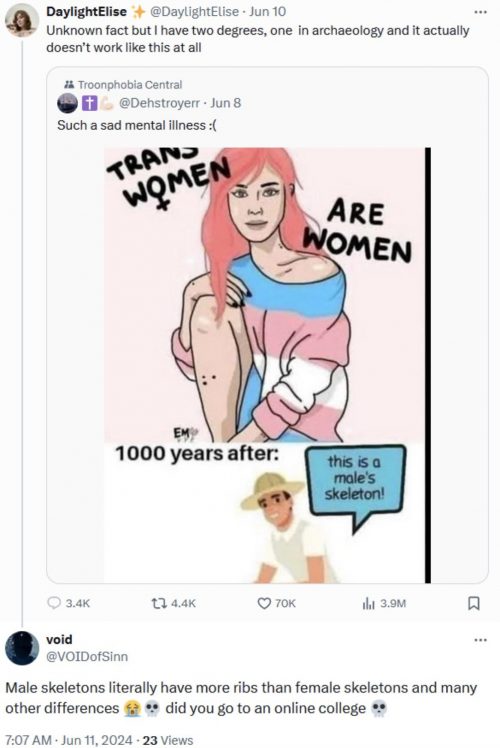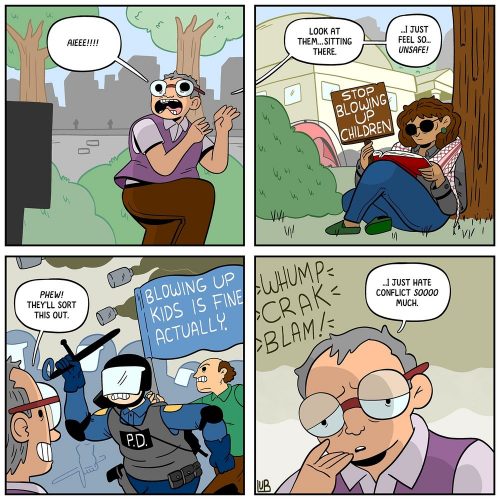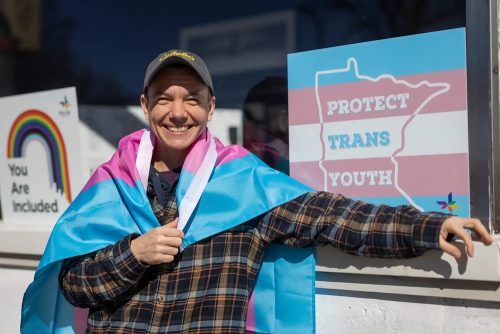Beth Bourne is an administrator at the UC Davis’ Institute of Transportation Studies. She is also the president of her local Moms for Liberty chapter. She took off to Hawai’i for vacation, and discovered that the native people have a tradition she does not like at all.
Māhū (‘in the middle’) in Native Hawaiian and Tahitian cultures are third gender people with traditional spiritual and social roles within the culture, similar to Tongan fakaleiti and Samoan fa’afafine. Historically, the term māhū referred to people assigned male at birth (AMAB), but in modern usage, māhū can refer to a variety of genders and sexual orientations.
According to present-day māhū kumu hula Kaua’i Iki:
Māhū were particularly respected as teachers, usually of hula dance and chant. In pre-contact times māhū performed the roles of goddesses in hula dances that took place in temples which were off-limits to women. Māhū were also valued as the keepers of cultural traditions, such as the passing down of genealogies. Traditionally parents would ask māhū to name their children.
The hotel she was staying at was hosting a māhū luncheon. In public, no less. They were relaxing in the lobby! Well, now how can a conservative white American deal with that? By tantrums, hysterical accusations, demanding to see the hotel manager, and calling for the police, of course.
Notes from Waikiki, HI:
I am not okay with children being exposed to drag queens. Several other Alohilani hotel guests told me they also found it offensive so I spoke up to the manager yesterday.
I was briefly detained by @honolulupolice, refunded my hotel charges, and have no… pic.twitter.com/LDoq7MEOQr
— Beth Bourne (@bourne_beth2345) June 24, 2024
What shocks me is that Beth Bourne herself recorded her ridiculous melt-down and proudly posted it on Twitter for all to see. She put on a spectacle of intolerance, hatred, and stupidity, while the māhū sat quietly, calmly, gracefully, and responded politely, and she thought we’d all see how awful drag queens are by posting it? Weird. The police came, and escorted Bourne off the hotel premises, and UC Davis issued a rebuke, and she still thought this was a good idea? I’m much more impressed with Marina Del Rey’s response.
I think it’s telling that this video stirred up strong emotions in many viewers. There was prior dialog from her ahead of what I filmed and ultimately she was taken off the property by the @honolulupd. I would like to say a huge THANK U again to the @alohilaniresort for your care and concerns during and after, to all of us…. those within witness – guest or staff – many extended compassion of which Im very very grateful.
To give some context – a few of us were on the hotel property to film a video for an upcoming pageant, playing roles as hotel staff in drag. This woman saw us filming and came to a slow burn and then she popped off. Her rant went on and on – possibly with the attempt to get a riled angered response. She didn’t get one. In this video – you see my perspective. In her video – u will see three drag queens surrounded by staff and guests – just sitting down.
Im not here to figure her out, incite hate against her, or call her names —— Im here to remind you, many meet worse daily, the ugliness of this happens without regard to where, why, how etc….Even in the lobby of your hotel.
Love more on those beside you. Love on those who are turned away by their own….and thank u to everyone who has sent messages of concern and care. we are all okay. A little shook & saddened but grateful to the people we were in the company of and everyone who reached out. and still keeping faith in humanity.🤙🏼













